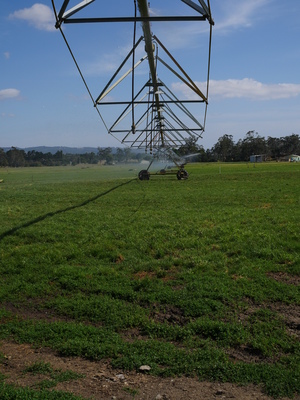RECENT rainfall coupled with warm overnight temperatures has increased the risk of facial eczema outbreaks.
Facial eczema is a liver disease caused by a fungal toxin that affects perennial ryegrass pastures.
Given the right seasonal conditions, the fungus multiplies and produces a toxin (called sporedesmin) that is ingested by grazing animals. The toxin causes a dramatic fall in milk production, metabolic disturbances and photosensitization of exposed skin, with severe pain.
Animals that survive facial eczema often suffer permanent liver damage, never fully recover and may require culling.
To help farmers manage the risk of facial eczema in their herds, Dairy Australia and GippsDairy have again supported a pasture spore monitoring service across a series of sentinel farms in Gippsland. (Go to www.dairyaustralia.com.au/facialeczema for more details and to see the latest spore counts).
When the level of fungal spores on the sentinel farms reaches trigger levels, neighbouring farms who have signed up for alerts will be contacted via SMS, allowing them to immediately introduce prevention methods which could save their cattle from the potentially lethal problems associated with the condition. Farmers will also be alerted through the media and via their veterinarians and stockfeed suppliers.
While the spore counts measured so far have not yet reached these high risk levels, dairy farmers in East and West Gippsland as well as the Yarram district are being encouraged to remain vigilant about spore counts in pastures on nearby sentinel farms.
GippsDairy project and events co-ordinator Karen Romano said it was vital that farmers in at-risk areas keep up-to-date with spore levels in their local district.
“Remember that early intervention is critical,” she said.
“When local pasture spore counts trend upward of 20,000 spores/gram and there is moisture on the ground with warm air temperatures, each farm should monitor its own pasture spore counts week-to-week and implement facial eczema control and prevention strategies.”
Zinc supplements are the only recognised prevention for the condition. Contact your vet for the correct dosage.
“There’s not much that can be done once facial eczema strikes, which is why Dairy Australia and GippsDairy have used dairy service levy funds to develop and support the facial eczema monitoring program,” Karen said.
“The spore count information is available to all farmers, so it only requires regular checking of conditions and spore counts to keep on top of the situation.”
If you would like to sign up to receive regular facial eczema e-bulletins, please visit www.dairyaustralia.com.au/subscribe.







